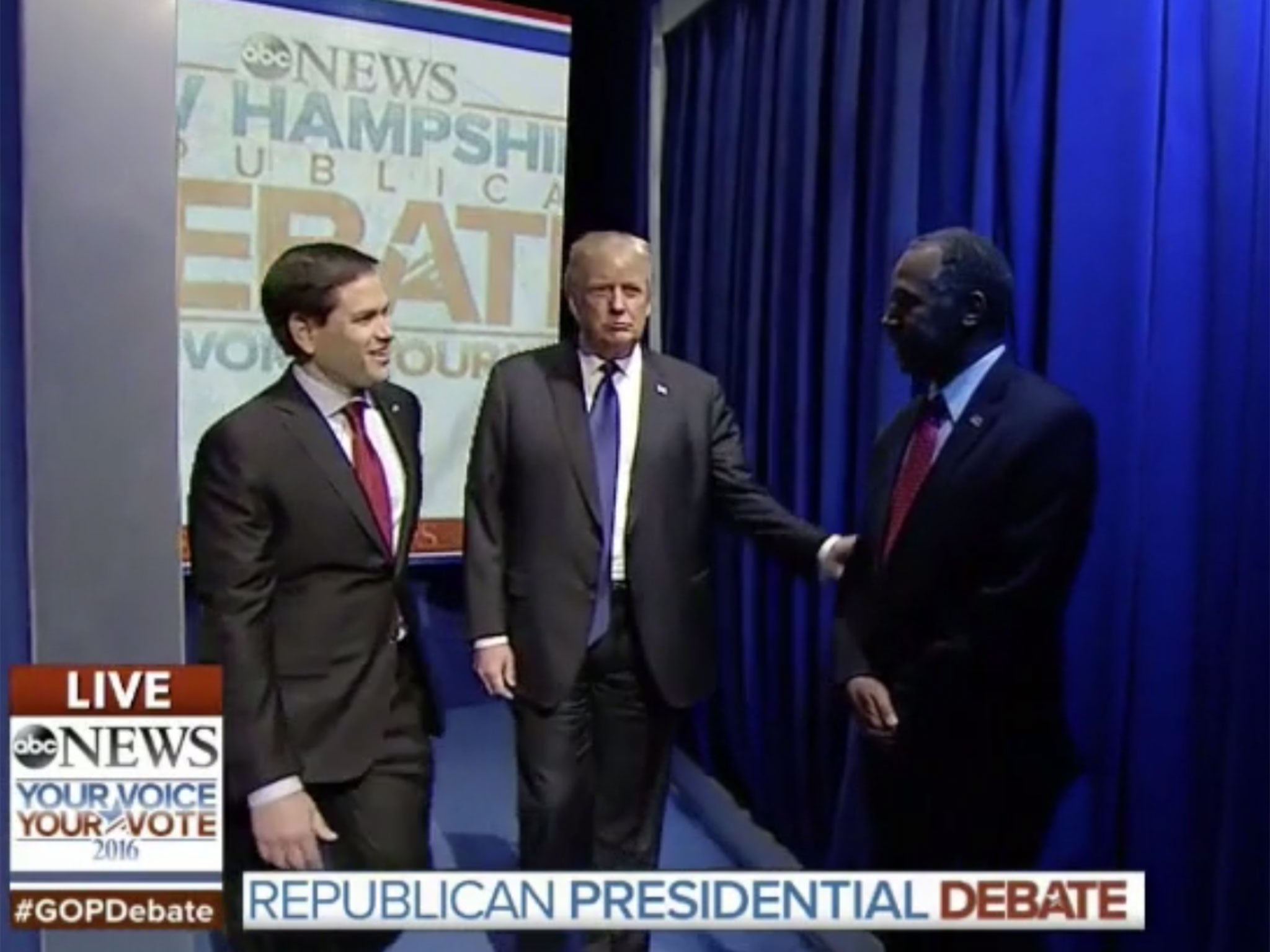US elections 2016: After Ben Carson's blunder at the New Hampshire Republican debate, how much can you learn from body language?
All presidential candidates are under scrutiny during debate seasion

Your support helps us to tell the story
From reproductive rights to climate change to Big Tech, The Independent is on the ground when the story is developing. Whether it's investigating the financials of Elon Musk's pro-Trump PAC or producing our latest documentary, 'The A Word', which shines a light on the American women fighting for reproductive rights, we know how important it is to parse out the facts from the messaging.
At such a critical moment in US history, we need reporters on the ground. Your donation allows us to keep sending journalists to speak to both sides of the story.
The Independent is trusted by Americans across the entire political spectrum. And unlike many other quality news outlets, we choose not to lock Americans out of our reporting and analysis with paywalls. We believe quality journalism should be available to everyone, paid for by those who can afford it.
Your support makes all the difference.Ben Carson’s messy entrance at the Republican debate in New Hampshire was just one example of a candidate’s behaviour and body language coming under scrutiny in recent weeks.
Body language expert Dr David Givens suggested that this blunder was born out of stage fright, "possibly brought on by sedation".
"As he hesitated in the wings after hearing his name called, Carson’s entire body froze,” Dr Givens wrote in The Guardian. "He stood flat-footed with his torso locked in the upright position, hands tightly clasped and arms pulled in flat against his lower abdomen."
He added that memorable, non-verbal moments such as this one involving Carson "give voters pause".
With the oft-repeated "55 per cent of communication is body language” surely ringing in Carson’s ears, it’s worth taking a look at a video from TED Talks produced in 2012 which explains just how elements such as posture can impact your life.
Social psychologist Amy Cuddy suggests: “Do a little audit of your body and what you’re doing with your body. How many of you are making yourselves smaller – maybe you’re hunching, crossing your legs, wrapping your ankles… maybe you’re spread out?
"Obviously when we think about non-verbal behaviour: it’s language so we think about communication, and when we think about communication we think about interactions. So what is your body language saying about you?"
Cuddy notes that we make "sweeping judgements" from body language and those can predict meaningful outcomes, such as who gets promoted for a new role at work, someone being asked out for a date, etc.
She suggests "tiny tweaks" that can lead to big changes in how you feel about yourself and how other people see you.
A "high power pose" such as the media-dubbed "Wonder Woman" has been found to increase testosterone levels by 20 per cent, while a "low power pose" such as a lowered chin and arms folded around the body experienced a 10 per cent decrease.

"So two minutes lead to these hormonal changes that can lead to your brain being both assertive and comfortable, or really stress-reactive. It seems that our non-verbals can change how we feel about ourselves," Dr Cuddy said.
Join our commenting forum
Join thought-provoking conversations, follow other Independent readers and see their replies
Comments